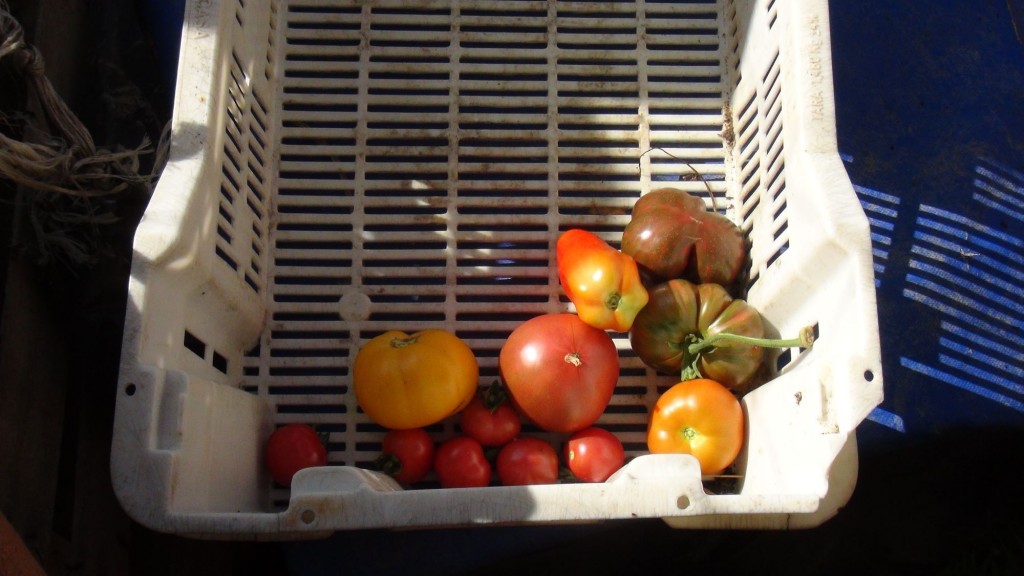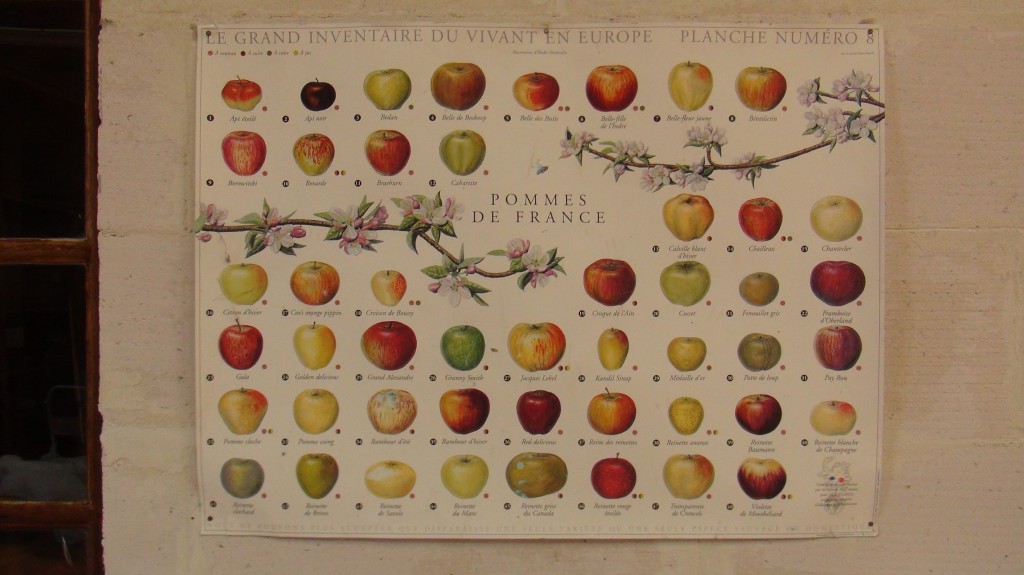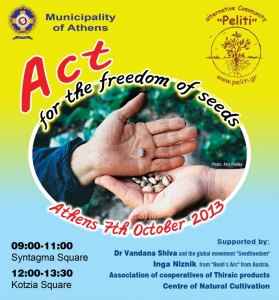I had the chance to hear Dr. Vandana Shiva and other speakers today at an event about biodiversity which was organised as part of the international fortnight dedicated to seed freedom, conceived also by Vandana Shiva.
Things are looking serious. Apparently the EU is preparing legislation that will prohibit “plant propagating material” (what a sterilised, robotic way to name seeds) being exchanged, sold or distributed, unless it’s in the official lists of permitted genetic material for cultivation. Who’s going to have the privilege of featuring on those lists? Who else but our old friend Monsanto, who will finally turn their notorious GMO seeds into a monopoly. And it’s not as if more people will be fed or that food’s going to be cheaper: imagine having to pay for every (sterile) seed which will sprout a plant that is tailored to need Monsanto fertilizer and pesticide to thrive (that’s extra expenses) and, in the end, produces shit, poisoned food. That’s apparently the standard we should be aiming for as a society.
The EU is claiming that his measure will help ensure this quality through homogeneity – something like having your vegetables made by IKEA. It doesn’t take a genius however to figure out what all this will do to babies such as these:


In what way could the above benefit the civil society in any way, any way at all?
If we ask cui bono, the anwer to this, to all this, should be depressingly clear. Is this the future we want? A techno-nightmare in which people have to fight for everything they thought that being born in the 20th century had gifted them with, including a decent job and a society that respects inidividual rights?
The only solution I can think of, since most city dwellers wouldn’t be remotely interested in protecting their health, much less their country’s and our only home’s biodiversity, from these monstrous corporations, will be to actively protect the seeds planting them in one’s (urban) garden and eco-communities, at the same time forming protection networks. Peliti (for Greeks) and this campaign for seed sovereignty for a start and some ideas.
More alternatives? A concept I’d heard about and which was talked about today but I regrettably haven’t delved into is Masanobu Fukuoka’s Natural Gardening. This is the main idea: the farmer/cultivator puts lots of different kinds of seeds in little balls of dirt and sows them. The right kinds of seeds only sprout at their own ideal locations, resulting in a balanced garden or farm which has a little bit of everything. This might come to a surprise to many monoculture enthusiasts but this variety actually strengthens the balance of the plant ecology -in the same way a multicultural society creates superior dynamics to a clean one- and yields more food. The cultivator never intervenes in any way, shape or form: no chemicals, no pesticides, nothing. Not even organic means. Really: it’s the agriculture of doing nothing. Sustainability, permaculture, balance. No wonder a Japanese came up with such a practice.

